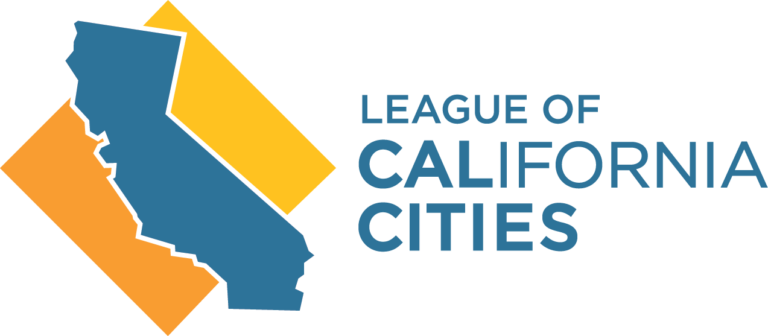Infrastructure Finance Programs
In response to the increasing local agency staff time and budget pressures caused by new commercial, industrial or residential development, CSCDA offers the Statewide Community Infrastructure Program (“SCIP”). SCIP is a financing program that enables developers to pay most impact fees and finance public improvements through an assessment district or community facilities district via tax-exempt bond issuance proceeds. The SCIP program has assisted communities and developers throughout California to finance over $1 billion in impact fees and public infrastructure since 2003.
This highly versatile program has been molded to the needs of each local agency participant of SCIP. As most local agencies require developers to pay impact fees prior to obtaining a permit, SCIP can be used to directly prepay these fees or, alternatively, to reimburse the developer after fee payment. The program can be used to enable developers to pay for, or be reimbursed for, all eligible impact fees or for a single impact fee. Moreover, the program may alleviate the need for a fee deferral program by providing the local agency with necessary funds and eliminating the risk of nonpayment by the developer.
SCIP has been designed to minimize local agency staff involvement by using an experienced team of finance professionals to administer the program, thereby freeing valuable local agency resources for other functions. To participate, a local agency need only be a member of CSCDA and pass a resolution approving the program. Please refer to the SCIP FAQ’s and the SCIP Manual for details.
SCIP provides two programs:
- The SCIP Pooled Revenue Bond Program which issues bonds 3 times/year (Spring, Fall & End of Year).
- Once a local agency has joined, developers may submit applications on-line.
- Through the Pooled Revenue Bond Program, CSCDA forms either an assessment district or community facilities district for each development project and issues local obligations payable from assessments or special taxes, as applicable.
- CSCDA then issues revenue bonds payable from the several local obligations which form the pool.
- A SCIP Standalone Program for projects which can be either Assessment Districts or Community Facilities Districts.
- Used for larger projects in the range of $10 million to $30 million or higher
- Can also include provisions for operations and maintenance special taxes.
THE SCIP Manual can be accessed here
For more information, please contact us.
SCIP Participating Agencies:
Alameda (City)
American Canyon
American Canyon Fire District
Anaheim
Angels Camp
Antioch
Bakersfield
Banning
Bayshore Sanitary District
Blythe
Brentwood
Butte County
Calistoga
Cathedral City
Chico
Chula Vista
Citrus Heights
Clovis
Coachella Valley Water District
Consumnes CSD
Corona
Cotati
Daly City
Dana Point
Davis
Desert Hot Springs
Diablo Water District
Dublin
Dublin San Ramon Services District
East Palo Alto
Eastern Municipal Water District
El Dorado Irrigation District
El Dorado County
El Monte
Elk Grove
Fairfield
Folsom
Fontana
Fremont
Fresno
Galt
Gardena
Grass Valley
Gridley
Healdsburg
Hercules
Hesperia
Hollister
Huntington Beach
Imperial County
Indian Wells
Indio
Ironhouse Sanitary District
Kern County
Lancaster
Lathrop
Lincoln
Linda County Water District
Live Oak
Livermore
Loomis
Madera (City)
Manteca
Mariposa County
Martinez
Menifee
Merced (City)
Millbrae
Mission Springs Water District
Morgan Hill
Morro Bay
Murrieta
Napa (City)
Napa County
Newport Beach
Norco
Oakley
Olivehurst PUD
Oroville
Oxnard
Palm Springs
Patterson
Petaluma
Placer County
Rainbow Municipal Water District
Rancho Cordova
Redding
Rialto
Richmond
Rio Vista
Riverside County
Rocklin
Roseville
Sacramento (City)
Sacramento County
Sacramento County Regional Sanitation District
Sacramento Area Sewer District
San Bernardino Flood Control District
San Bernardino County
San Diego (City)
San Diego County
San Jacinto
San Juan Bautista
San Juan Capistrano
San Luis Obispo (City)
San Luis Obispo County
San Marcos
San Mateo County
Santa Ana
Santa Maria
Santa Rosa
Santee
Sonoma County
South Placer Municipal Utility District
South Placer RTA
South Placer Wastewater Authority
Stockton
Suisun City
Sutter County
Sweetwater Authority
Thousand Oaks
Tracy
Truckee Donner PUD
Tuolumne County
Ukiah
Vacaville
Vallejo
Victorville
West Sacramento
Western Municipal Water District
Westminster
Wheatland
Windsor
Woodland
Yuba City
Yuba City USD
Yuba County
Yucaipa
Yucaipa Valley Water District
In response to the increasing local agency staff time and budget pressures caused by new commercial, industrial or residential development, CSCDA offers the Statewide Community Infrastructure Program (“SCIP”). SCIP is a financing program that enables developers to pay most impact fees and finance public improvements through an assessment district or community facilities district via tax-exempt bond issuance proceeds. The SCIP program has assisted communities and developers throughout California to finance over $1 billion in impact fees and public infrastructure since 2003.
This highly versatile program has been molded to the needs of each local agency participant of SCIP. As most local agencies require developers to pay impact fees prior to obtaining a permit, SCIP can be used to directly prepay these fees or, alternatively, to reimburse the developer after fee payment. The program can be used to enable developers to pay for, or be reimbursed for, all eligible impact fees or for a single impact fee. Moreover, the program may alleviate the need for a fee deferral program by providing the local agency with necessary funds and eliminating the risk of nonpayment by the developer.
SCIP has been designed to minimize local agency staff involvement by using an experienced team of finance professionals to administer the program, thereby freeing valuable local agency resources for other functions. To participate, a local agency need only be a member of CSCDA and pass a resolution approving the program. Please refer to the SCIP FAQ’s and the SCIP Manual for details.
SCIP provides two programs:
- The SCIP Pooled Revenue Bond Program which issues bonds 3 times/year (Spring, Fall & End of Year).
- Once a local agency has joined, developers may submit applications on-line.
- Through the Pooled Revenue Bond Program, CSCDA forms either an assessment district or community facilities district for each development project and issues local obligations payable from assessments or special taxes, as applicable.
- CSCDA then issues revenue bonds payable from the several local obligations which form the pool.
- A SCIP Standalone Program for projects which can be either Assessment Districts or Community Facilities Districts.
- Used for larger projects in the range of $10 million to $30 million or higher
- Can also include provisions for operations and maintenance special taxes.
THE SCIP Manual can be accessed here
For more information, please contact us.
SCIP Participating Agencies:
Alameda (City)
American Canyon
American Canyon Fire District
Anaheim
Angels Camp
Antioch
Bakersfield
Banning
Bayshore Sanitary District
Blythe
Brentwood
Butte County
Calistoga
Cathedral City
Chico
Chula Vista
Citrus Heights
Clovis
Coachella Valley Water District
Consumnes CSD
Corona
Cotati
Daly City
Dana Point
Davis
Desert Hot Springs
Diablo Water District
Dublin
Dublin San Ramon Services District
East Palo Alto
Eastern Municipal Water District
El Dorado Irrigation District
El Dorado County
El Monte
Elk Grove
Fairfield
Folsom
Fontana
Fremont
Fresno
Galt
Gardena
Grass Valley
Gridley
Healdsburg
Hercules
Hesperia
Hollister
Huntington Beach
Imperial County
Indian Wells
Indio
Ironhouse Sanitary District
Kern County
Lancaster
Lathrop
Lincoln
Linda County Water District
Live Oak
Livermore
Loomis
Madera (City)
Manteca
Mariposa County
Martinez
Menifee
Merced (City)
Millbrae
Mission Springs Water District
Morgan Hill
Morro Bay
Murrieta
Napa (City)
Napa County
Newport Beach
Norco
Oakley
Olivehurst PUD
Oroville
Oxnard
Palm Springs
Patterson
Petaluma
Placer County
Rainbow Municipal Water District
Rancho Cordova
Redding
Rialto
Richmond
Rio Vista
Riverside County
Rocklin
Roseville
Sacramento (City)
Sacramento County
Sacramento County Regional Sanitation District
Sacramento Area Sewer District
San Bernardino Flood Control District
San Bernardino County
San Diego (City)
San Diego County
San Jacinto
San Juan Bautista
San Juan Capistrano
San Luis Obispo (City)
San Luis Obispo County
San Marcos
San Mateo County
Santa Ana
Santa Maria
Santa Rosa
Santee
Sonoma County
South Placer Municipal Utility District
South Placer RTA
South Placer Wastewater Authority
Stockton
Suisun City
Sutter County
Sweetwater Authority
Thousand Oaks
Tracy
Truckee Donner PUD
Tuolumne County
Ukiah
Vacaville
Vallejo
Victorville
West Sacramento
Western Municipal Water District
Westminster
Wheatland
Windsor
Woodland
Yuba City
Yuba City USD
Yuba County
Yucaipa
Yucaipa Valley Water District
What is CSCDA?
The California Statewide Communities Development Authority (CSCDA) is a joint powers authority sponsored by the League of California Cities and the California State Association of Counties.
Who are the participants of CSCDA?
Over 530 cities, counties and special districts in the State are members of CSCDA.
What are eligible development impact fees?
Fees paid to a local agency to mitigate the impact of development and which will ultimately be used by the local agency to pay for the costs of public infrastructure.
How can impact fees be made to be paid in advance?
The local agency can negotiate with the developer to have the fees paid upon approval of a specific plan, development agreement or vesting tentative map and then fund the fees through SCIP.
If we use SCIP and become a member of CSCDA, are we in any way liable for payments or defaults of other participants?
No. If one participant were to default, there would be no effect on the other participants. There is no cross-collateralization of payments or assessments.
What is the difference between an assessment lien and an assessment bond?
The assessment lien is imposed on the parcel of land pursuant to the Municipal Improvement Act of 1913. The Act authorizes an issuer to impose an assessment lien on benefited property to finance various public improvements. The Bonds are Limited Obligation Improvement Bonds authorized under the Improvement Bond Act of 1915 and secured by the liens imposed under the 1913 Act.
Is voter approval required?
No. There is no requirement for a general election. CSCDA will conduct a hearing and landowner ballot protest procedure. Since a condition of participation in SCIP is landowner consent, protests are not expected.
Is a local agency participant of the pool liable to make any bond payments?
No. The bonds are limited obligation bonds, and under no circumstance is a local agency pool participant liable from its general fund or from any other revenue source.
How is SCIP administered?
SCIP is administered by highly trained and experienced consultants selected by CSCDA who prepare the tax roll, disseminate continuing disclosure reports, and handle delinquencies.
What are the duties of a local agency participant after the bonds are issued?
The only duties required are to provide SCIP consultants with information concerning the development such as recordation of subdivisions and changes in property ownership.
How does SCIP meet the benefit test?
The benefit test is met by the fact that the each property must pay the impact fee in order to develop. This differs from typical assessment proceedings in that the benefit test is tied to the improvement.
Do commercial projects qualify?
Yes, in fact the permit fee program is ideal for commercial projects which can pay substantial impact fees but normally do not participate in bond financing. Examples would be shopping centers or high-rise buildings.
How do you join SCIP?
The local agency’s governing Council or Board must pass two SCIP resolutions. From that point, project questionnaires are filled out and submitted to the financing team for individual funding requests.
| Underwriter | |||
Robert L. Williams Jr. RBC Capital Markets | |||
| SCIP Legal Counsel | |||
Patricia Eichar Orrick, Herrington & Sutcliffe LLP | |||
| Trustee | |||
Isela Hernandez Wilmington Trust, National Association | |||
| Assessment Administrator | |||
Shayne Morgan DTA
|
CLICK HERE for the 2026 SCIP Issuance Calendar
SCIP Presentation Slides
SCIP Presentation
SCIP Newsletter
Overview
The Mello-Roos Community Facilities Act of 1982 permits CSCDA to establish a Mello-Roos Community Facilities District (“CFD”) which allows for financing of public improvements and services. The services and improvements that Mello-Roos CFDs can finance include streets, sewer systems and other basic infrastructure, police protection, fire protection, ambulance services, schools, parks, libraries, museums and other cultural facilities.
Click Here to download a copy of CSCDA’s Goals and Policies for CFD financing
For more information, please contact us.
CFD Annual Reports:


